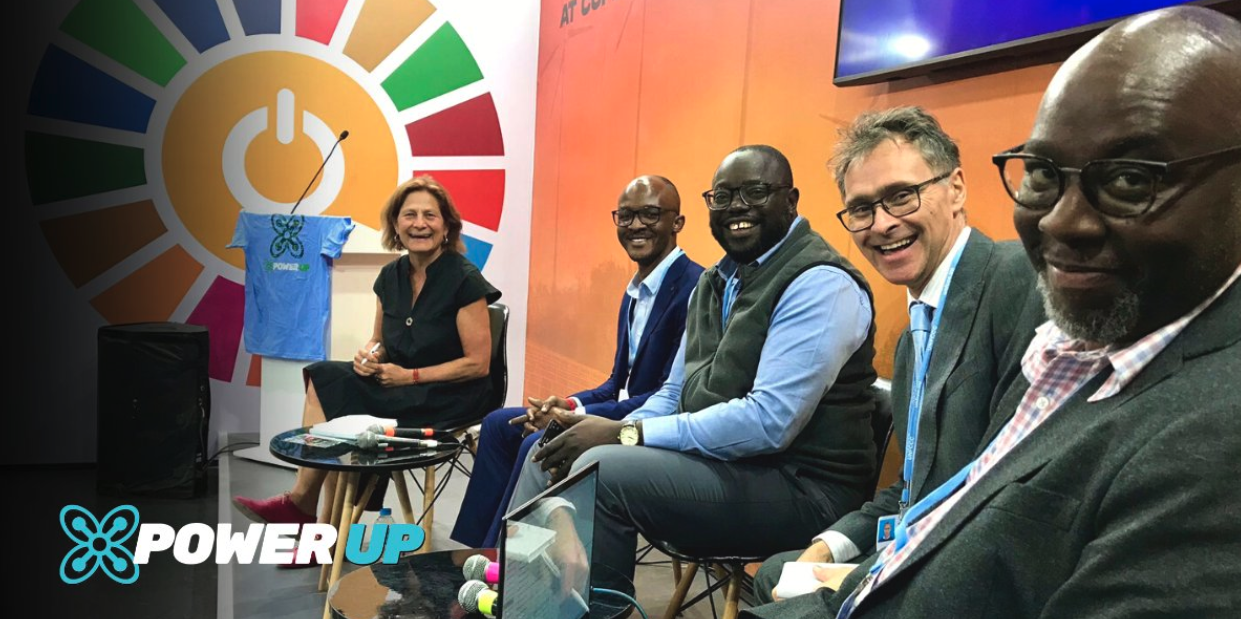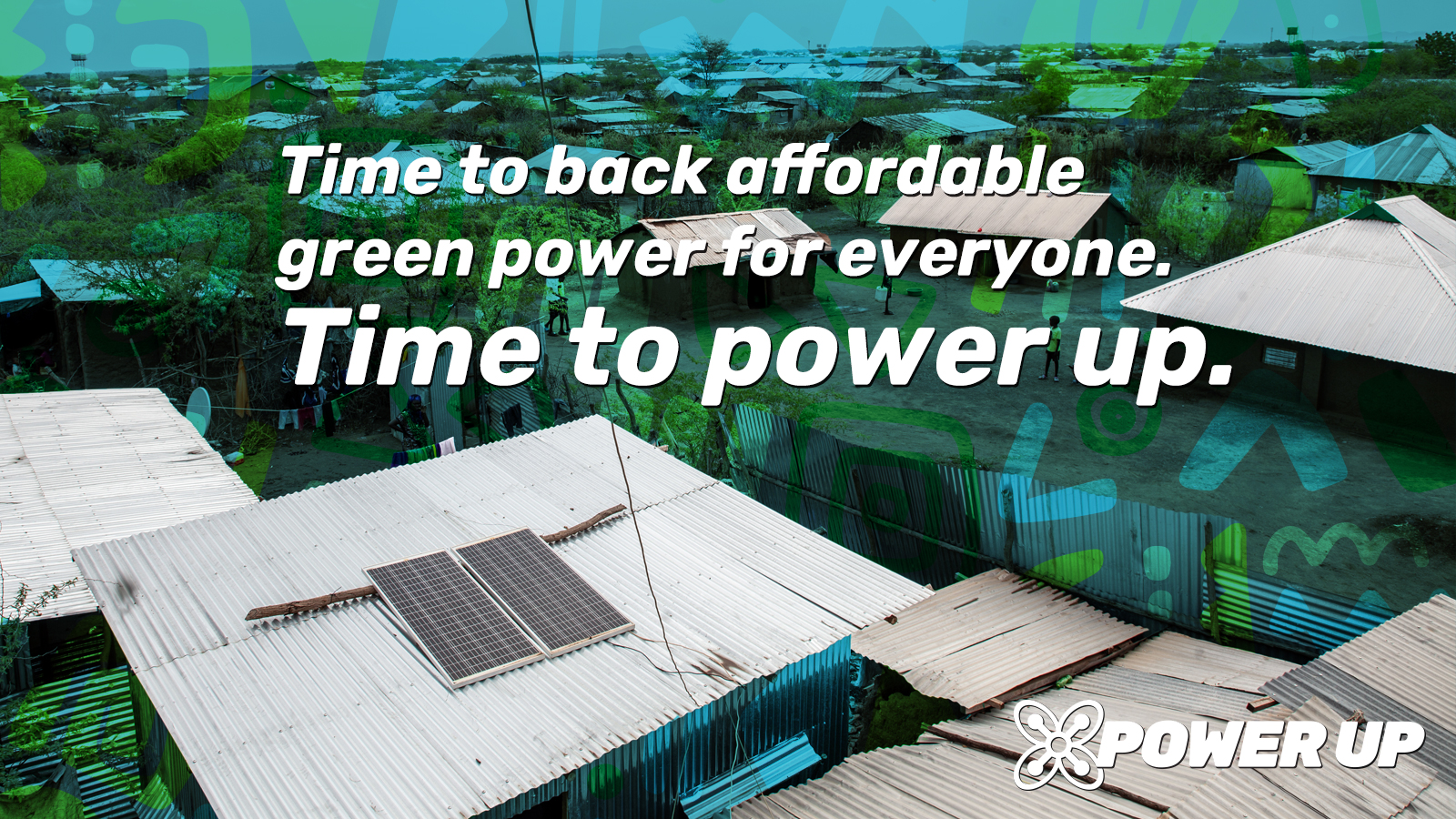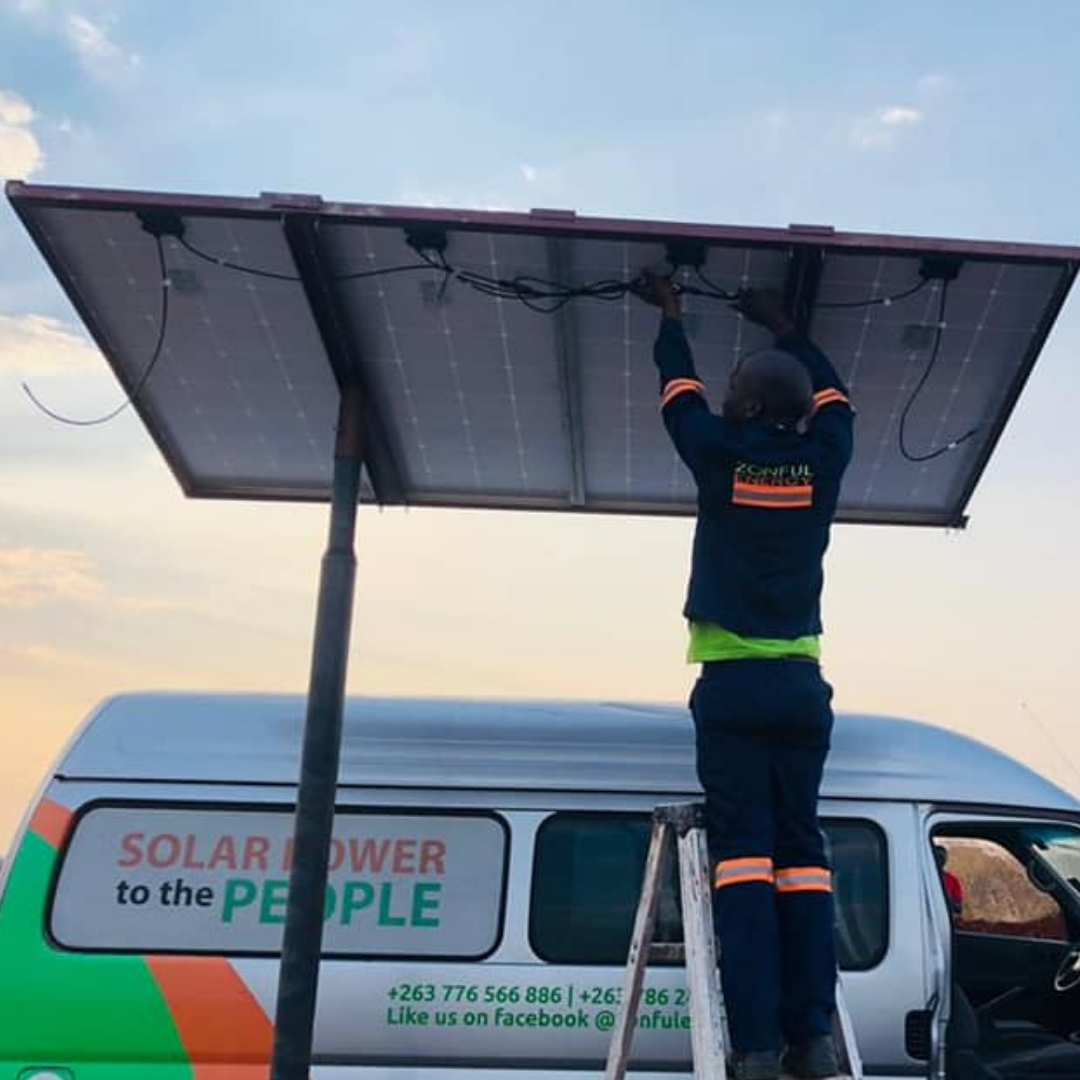
Inspiring examples of energy access solutions and the need for dedicated funding to improve African lives and livelihoods were discussed at a COP27 event, organised by Ashden as part of the Power Up coalition.
The group of over 50 coalition members are campaigning on the international stage for greater climate adaptation funding from the Global North to finance affordable, renewable, energy access for those threatened by the climate crisis.
The audience heard from the panel of experts on how sustainable energy is a key adaptation tool for marginalised communities experiencing high levels of energy poverty.
Affordable, clean energy has a vital role to play in securing a better future and improving agriculture, education, healthcare and economic resilience for the 600 million African people without access to electricity.
The panel discussion under the heading ‘Power Up: A Global Coalition Fighting for Climate Justice and Adaptation’, moderated by Ashden CEO Harriet Lamb, took place on Adaptation and Agriculture Day at the international climate conference.

Panelist Innocent Tshilombo, is founder of 2022 Ashden Awards winner Kakuma Ventures which supplies solar-powered and affordable internet access as well as training in computing and solar engineering skills. He told the audience and those watching online that many of the 200,000 displaced people living in the Kenyan refugee camp were forced to flee their homes due to climate related events, such as drought.
They face several challenges at the camp, including access to energy to power up devices so they can use digital services to improve their lives through access to education and employment opportunities.
Innocent Tshilombo said: “COP27 must provide a platform for the under-represented. Those living in refugee camps and the many disenfranchised shouldn’t be excluded from the solutions. We need to design policies of inclusive finance to facilitate the development of energy access systems that meet the needs of the people, break the cycle of dependency and can be upscaled.”
Eugene Nforngwa, of the Nairobi-based Pan African Climate Justice Alliance, (PACJA), said that those most vulnerable to climate change are the least capable of coping with the stresses.
He told the audience how access to energy can bring a range of improvements to livelihoods from lighting, cooling and heating homes as well as increased earning potential.
He said: “Those working in subsistence agriculture lose 60-70 per cent of their harvest because of a lack of cool storage facilities but access to energy can change that completely.”

This is illustrated by Zonful Energy – a Zimbabwean energy company bringing training and affordable solar power to the country’s off-grid, rural, areas experiencing high levels of unemployment and winner of the 2022 Ashden Award for Energy Access Skills. At Zonful Energy’s academy, trainees learn how to install and repair renewable energy systems, alongside marketing, finance and other business skills.
Most trainees come from marginalised, rural, communities affected by energy poverty. Many of the 2,000 trained so far have gone on to become employed by Zonful Energy as technicians or sales agents.
The audience at the SDG7 Pavilion also heard from Patrick Tonui, Head of Policy and Regional Strategy at global association for the off-grid solar energy industry GOGLA.
He called for support from policy makers to shift mindsets so that energy access is included in discussions on grid distributed energy solutions.
“Support for all energy technologies, with planning and investment, so it is available, accessible and affordable for even the poorest communities, is essential,” he said.
“Climate intervention can build adaptation resilience and provide much-needed solutions to off grid rural communities.”
Gareth Phillips, of the African Development Bank (ADB), said there was a need to double adaptation finance by 2025. A pilot-phase ADB adaptation benefits mechanism is encouraging governments, businesses and investors to develop an infrastructure to provide small-scale loans so that no one is left behind in the low-carbon transition.
He said: “The funds need to start flowing. We want developed countries to pay for adaptation benefits so people can improve their lives with micro loans to finance adaptation projects.”
Joining virtually from Togo, Astria Fatak, founder of another 2022 Ashden Award winner Energy Generation, said that young Africans and women face huge challenges in gaining the skills and opportunities for a better future.
She pointed out that whilst there are grants available for large-scale projects it is difficult to gain access to funding for hyper-local projects.
Astria Fatak said: “We need to go further and faster. It is hard to find small amounts of money to grow local projects and we need to overcome the challenge of making funds available to provide young African with the critical skills to create new revenue streams.”
